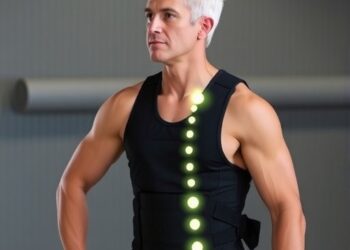A Dunedin Study algorithm that indicates how people age has been used by one of the world’s most influential families.
A Dunedin Study algorithm that indicates how people age has been used by one of the world’s most influential families.
In yesterday’s season finale of The Kardashians, some family members took an epigenetic blood test to discover how fast or slow their bodies are aging.
Their data were analysed by TruDiagnostic using the Dunedin Study’s DunedinPACE algorithm to determine their pace of aging – how many years their bodies age for each calendar year.
The DunedinPACE tool is like a speedometer with an average rate of one year of biological aging per one year of chronological aging. That means if a person’s pace of aging is 0.8, they are aging 20 per cent slower than most people of their age.
During the episode, TruDiagnostics Chief Executive Officer Matt Dawson revealed Kim Kardashian’s pace of aging score was 0.82 meaning she is aging 18 per cent slower than most people of her age.
Khloe Kardashian’s pace of aging score was even more impressive at 0.72, meaning she is aging 28 per cent slower than most people her age. On the episode, both sisters were thrilled with their results.
Other TruDiagnostic tests, not involving DunedinPACE, revealed their biological ages: 43-year-old Kim’s biological age was 34, Khloe, who was 39 at the time of filming, was 28, Kris Jenner (68) was six years younger, and Scott Disick’s age remained unchanged.
Dunedin Study Director, Research Professor Moana Theodore says having DunedinPACE used by the Kardashian family is surreal.
“Our internationally renowned scientific findings on aging, including the DunedinPACE algorithm, are used by studies all around the world to examine the causes of premature aging and whether it is associated with poorer health outcomes in later life,” she says.
“That said, we never imagined that it would reach the Kardashians, who we recognise as leading global influencers and highly successful businesspeople.
“This shows the Study and the family share a strong interest in the science of aging.”
DunedinPACE was created by Dunedin Study researchers from the University of Otago and Duke University in North Carolina using DNA methylation levels to measure biological aging.
The Dunedin Study, the most detailed study of human health and development in the world, follows the lives of 1037 babies born at Queen Mary Maternity Hospital between April 1, 1972 and March 31, 1973.
For the past two decades, researchers have been examining their aging process.
“Research on biological aging is important because current aging policies are based on chronological age,” Professor Theodore says.
“However, people who are aging faster than their same-age peers may need more support in their lives to ensure that they maintain good health as they get older.”
Study findings show there is a wide variation in pace of aging as derived by 19 biomarkers, despite Dunedin Study members being the same chronological age.
“We found faster pace of aging in midlife was associated with several poorer health outcomes in midlife including diminished sensory-motor function, the experiencing of more cognitive difficulties, and more pessimistic perceptions of aging.”
The DunedinPACE aging algorithm is used by studies around the world to examine what can help support positive aging and reduce inequities in health as people age.
To date, the New Zealand public has also been able to individually access the DunedinPACE tool via a pin-prick blood test sold in some chemists and online, that is analysed by TruDiagnostic.




